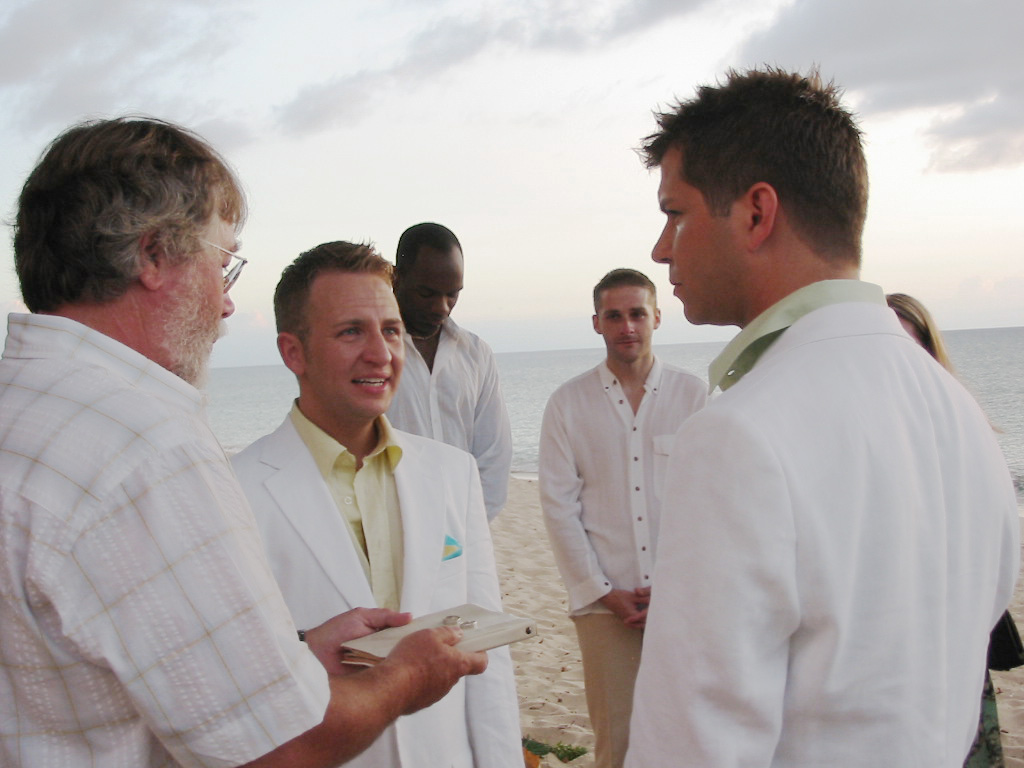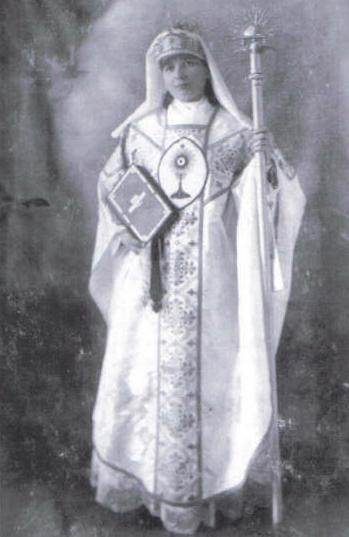|
Evangelical Church In The Rhineland
Protestant Church in the Rhineland (german: Evangelische Kirche im Rheinland; EKiR) is a United Protestant church body in parts of the German states of North Rhine-Westphalia, Rhineland-Palatinate, Saarland and Hesse (Wetzlar). This is actually the area covered by the former Prussian Rhine Province until 1920. The seat of the church is in Düsseldorf. The church leader is not called a "bishop", but a praeses (german: Präses), and there is no cathedral. The Protestant Church in the Rhineland is a full member of the Evangelical Church in Germany (EKD), and is a Prussian Union Church. The current praeses is Manfred Rekowski. The Evangelical Church in the Rhineland is one of 20 Lutheran, united, and Reformed churches of the EKD. As of December 2020, the church has 2,398,996 members in 809 parishes. The Protestant Church in the Rhineland is a member of the UEK and the Community of Protestant Churches in Europe and also the Reformed Alliance. In Bonn the church runs a conference ven ... [...More Info...] [...Related Items...] OR: [Wikipedia] [Google] [Baidu] |
United Protestant
A united church, also called a uniting church, is a church formed from the merger or other form of church union of two or more different Protestant Christian denominations. Historically, unions of Protestant churches were enforced by the state, usually in order to have a stricter control over the religious sphere of its people, but also other organizational reasons. As modern Christian ecumenism progresses, unions between various Protestant traditions are becoming more and more common, resulting in a growing number of united and uniting churches. Examples include the United Church of Canada (1925), the Church of North India (1970), the Uniting Church in Australia (1977), the Protestant Church in the Netherlands (2004), and the United Protestant Church of France (2013). Since the mid-20th century, and the rise of secularism worldwide, mainline Protestantism has shrunk. Among others, Reformed (Calvinist), Anglican, and Lutheran churches have merged, often creating large natio ... [...More Info...] [...Related Items...] OR: [Wikipedia] [Google] [Baidu] |
Continental Reformed Church
Continental Reformed Protestantism is a part of the Calvinist tradition within Protestantism that traces its origin in the European continent. Prominent subgroups are the Dutch Reformed, the Swiss Reformed, the French Reformed (Huguenots), the Hungarian Reformed, and the Waldensian Church in Italy. The term is used to distinguish these churches from Presbyterian, Congregational or other Calvinist churches, which can trace their origin to the British Isles or elsewhere in the world. Continental Reformed churches are descended from the Protestant Reformation in countries on the European mainland. Notably, their theology is largely derived from the Swiss Reformation, as Switzerland (specifically Geneva and Zürich) was a base for the most influential Reformed theologians of the era. It was inaugurated by Huldrych Zwingli, who formulated the first expression of the Reformed faith. Swiss Reformation was more fully articulated by Martin Bucer, Heinrich Bullinger and John Calvin. In t ... [...More Info...] [...Related Items...] OR: [Wikipedia] [Google] [Baidu] |
Schwarzwälder Bote
''Schwarzwälder Bote'', also known as ''Schwabo'', is a German regional daily newspaper for the Black Forest and Upper Neckar region. ''Schwabo'' operates a network of 15 branches, three service points, and 18 local editorial offices. The main circulation area, including the partner newspapers ''Oberbadische Zeitung'' and ''Lahrer Zeitung'', extends from Calw and Bad Herrenalb in the north to Lörrach in the south, from Lahr in the west to Balingen and Albstadt Albstadt () is the largest city in the district of Zollernalbkreis in Baden-Württemberg, Germany. It is located on the Swabian Jura mountains, about halfway between Stuttgart and Lake Constance. Geography Albstadt is spread across a variety of ... in the East. The sold circulation is 105,265 copies, a decrease of 23.9 percent since 1998. Since 2001 the "''Schwabo''" has received the national part of its content from the '' Stuttgarter Nachrichten''. Ownership structure ''Schwabo'' is published by the Schwarzwä ... [...More Info...] [...Related Items...] OR: [Wikipedia] [Google] [Baidu] |
Südwest Presse
''Südwest Presse'' is a German daily newspaper based in Ulm, which is distributed in Ulm, Neu-Ulm, Alb-Donau-Kreis and Landkreis Neu-Ulm. It is also the name of a regional cooperative venture (called a ''Zeitungsverbund'' – newspaper composite) of over 20 local publications that share regional and national features. All of these newspapers together cover about a third of Baden-Württemberg. Südwest's publishing house Neue Pressegesellschaft prints most of them. History Circulation The paid circulation of all regional imprints in 2012 was 294,251 (excluding ''Bietigheimer Zeitung'' and ''Eberbacher Zeitung''), while the paid circulation of the ''Südwest Presse'' newspaper was 59,959. The distribution area of Ulm, Neu-Ulm and Alb-Donau-Kreis overlaps with several other dailies, including ''Schwäbische Zeitung'', the '' Augsburger Allgemeinen'' and the ''Stuttgarter Nachrichten'', and so there is a competitive relationship despite their correspondent and economic co-operat ... [...More Info...] [...Related Items...] OR: [Wikipedia] [Google] [Baidu] |
Evangelical Church Of The Old-Prussian Union
The Prussian Union of Churches (known under multiple other names) was a major Protestant church body which emerged in 1817 from a series of decrees by Frederick William III of Prussia that united both Lutheran and Reformed denominations in Prussia. Although not the first of its kind, the Prussian Union was the first to occur in a major German state. It became the biggest independent religious organization in the German Empire and later Weimar Germany, with about 18 million parishioners. The church underwent two schisms (one permanent since the 1830s, one temporary 1934–1948), due to changes in governments and their policies. After being the favoured state church of Prussia in the 19th century, it suffered interference and oppression at several times in the 20th century, including the persecution of many parishioners. In the 1920s, the Second Polish Republic and Lithuania, and in the 1950s to 1970s, East Germany, the People's Republic of Poland, and the Soviet Union, ... [...More Info...] [...Related Items...] OR: [Wikipedia] [Google] [Baidu] |
Presbytery (church Polity)
Presbyterian (or presbyteral) polity is a method of church governance ("ecclesiastical polity") typified by the rule of assemblies of presbyters, or elders. Each local church is governed by a body of elected elders usually called the session or ''consistory'', though other terms, such as ''church board'', may apply.For example, the Church of the Nazarene, which subscribes to a body of religious doctrines that are quite distinct from those of most properly named Presbyterian denominations (and which instead descends historically from the Wesleyan Holiness Movement), employs a blend of congregationalist, episcopal, and presbyterian polities; its local churches are governed by an elected body known as the church board or simply "board members"; the term elder in the Nazarene Church has a different use entirely, referring to an ordained minister of that denomination. Groups of local churches are governed by a higher assembly of elders known as the presbytery or classis; presbyter ... [...More Info...] [...Related Items...] OR: [Wikipedia] [Google] [Baidu] |
Synod
A synod () is a council of a Christian denomination, usually convened to decide an issue of doctrine, administration or application. The word '' synod'' comes from the meaning "assembly" or "meeting" and is analogous with the Latin word meaning "council". Originally, synods were meetings of bishops, and the word is still used in that sense in Catholicism, Oriental Orthodoxy and Eastern Orthodoxy. In modern usage, the word often refers to the governing body of a particular church, whether its members are meeting or not. It is also sometimes used to refer to a church that is governed by a synod. Sometimes the phrase "general synod" or "general council" refers to an ecumenical council. The word ''synod'' also refers to the standing council of high-ranking bishops governing some of the autocephalous Eastern Orthodox churches. Similarly, the day-to-day governance of patriarchal and major archiepiscopal Eastern Catholic Churches is entrusted to a permanent synod. Usages i ... [...More Info...] [...Related Items...] OR: [Wikipedia] [Google] [Baidu] |
Blessing Of Same-sex Unions
The blessing or wedding of same-sex marriages and same-sex unions is an issue about which Christian churches are in ongoing disagreement. Traditionally, Christianity teaches that homosexual acts are sinful and that holy matrimony can only exist between two persons of the opposite sex. These disagreements are primarily centered on the interpretation of various scripture passages related to homosexuality, sacred Tradition, and in some churches on varying understandings of homosexuality in terms of psychology, genetics and other scientific data. While various Church bodies have widely varying practices and teachings, individual Christians of every major tradition are involved in practical (orthopraxy) discussions about how to respond to the issue. Terminology *Same-sex union *Same-sex marriage Theological views of those who support same-sex unions and/or marriages Those Christians and churches which support blessing of same-sex unions do so from several perspectives: * It is an ... [...More Info...] [...Related Items...] OR: [Wikipedia] [Google] [Baidu] |
Ordination Of Women
The ordination of women to ministerial or priestly office is an increasingly common practice among some contemporary major religious groups. It remains a controversial issue in certain Christian traditions and most denominations in which "ordination" (the process by which a person is understood to be consecrated and set apart by God for the administration of various religious rites) was often a traditionally male dominated profession (except within the diaconate and early heretical movement known as Montanism). In some cases, women have been permitted to be ordained, but not to hold higher positions, such as (until July 2014) that of bishop in the Church of England. Where laws prohibit sex discrimination in employment, exceptions are often made for clergy (for example, in the United States) on grounds of separation of church and state. The following aims to provide a comprehensive overview of the ordination of women from ancient to contemporary times. Religious groups are orde ... [...More Info...] [...Related Items...] OR: [Wikipedia] [Google] [Baidu] |
Martin Luther
Martin Luther (; ; 10 November 1483 – 18 February 1546) was a German priest, theologian, author, hymnwriter, and professor, and Augustinian friar. He is the seminal figure of the Protestant Reformation and the namesake of Lutheranism. Luther was ordained to the priesthood in 1507. He came to reject several teachings and practices of the Roman Catholic Church; in particular, he disputed the view on indulgences. Luther proposed an academic discussion of the practice and efficacy of indulgences in his '' Ninety-five Theses'' of 1517. His refusal to renounce all of his writings at the demand of Pope Leo X in 1520 and the Holy Roman Emperor Charles V at the Diet of Worms in 1521 resulted in his excommunication by the pope and condemnation as an outlaw by the Holy Roman Emperor. Luther taught that salvation and, consequently, eternal life are not earned by good deeds but are received only as the free gift of God's grace through the believer's faith in ... [...More Info...] [...Related Items...] OR: [Wikipedia] [Google] [Baidu] |
Conference Of Churches On The Rhine
The Conference of Churches on the Rhine (German: Konferenz der Kirchen am Rhein (KKR); French: Conférence des églises riveraines du Rhin) is an ecumenical organization of European Christians founded in 1961. It is a member of the World Council of Churches and a grouping within the Communion of Protestant Churches in Europe. It includes churches in Germany, France, Austria, Liechtenstein, Luxembourg, and Switzerland. Its members include: * Evangelical Church of the Augsburg Confession in Austria * Evangelical Church of the Palatinate * Evangelical Church in Baden * Evangelical-Lutheran Church in Württemberg * Evangelical Church in the Rhineland * Evangelical Church in Germany * Evangelical Church of the Canton of Thurgau * Evangelical Reformed Church of the Canton Basel-Landschaft * Evangelical-Reformed Church of the Canton Basel-Stadt * Evangelical Reformed Church of the Canton of Schaffhausen * Evangelical Reformed Church of the Canton of St. Gallen * Evangelical Reformed Ch ... [...More Info...] [...Related Items...] OR: [Wikipedia] [Google] [Baidu] |
Bad Godesberg
Bad Godesberg ( ksh, Bad Jodesbersch) is a borough ('' Stadtbezirk'') of Bonn, southern North Rhine-Westphalia, Germany. From 1949 to 1999, while Bonn was the capital of West Germany, most foreign embassies were in Bad Godesberg. Some buildings are still used as branch offices or consulates. Geography Bad Godesberg is located along the hills and cliffs of the west bank of the Rhine river, in west central Germany. Godesberg is also the name of the steep hill, of volcanic origin, on the top of which are the ruins of the Godesburg, a castle destroyed in 1583 during the Cologne War. History The following events occurred, per year: * 722 - First official record of the town, which was named after a nearby mountain, the Woudenesberg (later Godesberg), a basalt cone where the Ubii, a Germanic tribe, worshipped the god Wotan. * 1210 - On 15 October, Archbishop of Cologne Dietrich I lays the foundation stone of the Godesburg fortress on the Godesberg mountain. * 1583 - On 17 Dec ... [...More Info...] [...Related Items...] OR: [Wikipedia] [Google] [Baidu] |


.jpg)





